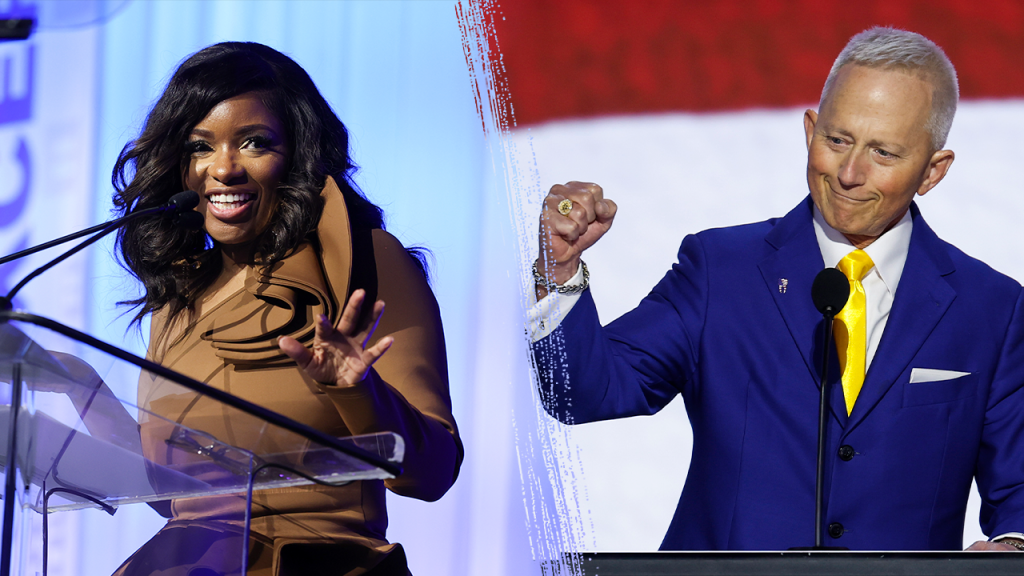Partisan tensions are expected to escalate as the House Judiciary Committee’s subcommittee on oversight prepares to hold a pivotal hearing regarding President Donald Trump’s immigration policies. Scheduled for 2 p.m. on Tuesday, the hearing centers on threats against Immigration and Customs Enforcement (ICE) operations in light of recent protests at the Delaney Hall Detention Center in Newark, New Jersey. The incident has drawn significant political attention, highlighting the discord between Democratic lawmakers and Republican representatives over immigration enforcement.
| Article Subheadings |
|---|
| 1) Background of the Hearing |
| 2) Key Figures Involved |
| 3) Reactions from Lawmakers |
| 4) Implications for Immigration Policy |
| 5) Looking Ahead: Future Hearings and Proceedings |
Background of the Hearing
The upcoming hearing is a response to an angry protest at the Delaney Hall Detention Center last month, where several Democratic officials allegedly confronted ICE agents. This confrontation resulted in heightened scrutiny of ICE’s operations in New Jersey, as critics argue that the agency’s actions endanger both local communities and immigrant rights. Rep. Jeff Van Drew, the Republican chair of the subcommittee, has called the situation “unacceptable” and plans to address how sanctuary policies compromise public safety during the hearing. Lawmakers promise the hearing will set the stage for a significant discourse regarding the implications of Trump’s immigration policies.
Key Figures Involved
At the forefront of the committee action is Rep. Jeff Van Drew, representing New Jersey’s southernmost district. Van Drew, an outspoken supporter of Trump’s immigration agenda, will oversee the proceedings. Alongside him is Rep. Jasmine Crockett, the top Democrat on the subcommittee, who has gained attention for her confrontational style. Meanwhile, other key figures include Rep. LaMonica McIver, who faces assault charges stemming from the protest incident, and Newark’s Mayor Ras Baraka, who is under investigation but has seen his trespassing charge dropped. Various lawmakers have suggested that this committee might reveal the political divides that manifest in immigration enforcement efforts.
Reactions from Lawmakers
With the hearing drawing near, reactions from lawmakers highlight the deep partisan divides over immigration. Rep. Van Drew argues that Democrat leaders have hindered efforts to secure communities, asserting, “We witnessed protests led by elected officials turn violent against ICE officers who were just doing their jobs.” In contrast, Democrat Rep. Jared Moskowitz suggested that any actions taken against his fellow lawmakers would be politically motivated and anticipates possible pardons if charges are filed. The committee meeting promises to unleash a torrent of partisan rhetoric, as both sides prepare to defend their positions aggressively.
Implications for Immigration Policy
The hearing’s outcome may have far-reaching effects on immigration policy in the U.S., especially as Democrats and Republicans continue to clash over enforcement strategies. Republicans are emphasizing law and order, insisting on the necessity of ICE in upholding public safety, while Democrats argue for the humane treatment of immigrants and challenge the criminalization of immigration violations. What emerges from this testimony and the accompanying debates will likely steer public perception and legislative action regarding immigration enforcement.
Looking Ahead: Future Hearings and Proceedings
As this contentious hearing unfolds, it may lay the groundwork for future legislative actions concerning immigration policy. Observers expect that both sides will use the scrutiny of ICE operations to frame their narratives leading into upcoming elections. The dynamic at the hearing can influence how Americans view immigration law and enforcement, which continues to be a hotly debated issue. Additional hearings may also take place, particularly if the committee finds unresolved issues or advances legislation aimed at reforming current immigration practices.
| No. | Key Points |
|---|---|
| 1 | The hearing examines threats against ICE operations amidst protests from Democratic legislators. |
| 2 | Significant figures include Rep. Jeff Van Drew and Rep. Jasmine Crockett. |
| 3 | Partisan reactions are evident, with both sides blaming each other for escalating tensions. |
| 4 | The outcome may affect future immigration enforcement policies substantially. |
| 5 | This hearing could lead to further scrutiny of ICE and potentially new legislation. |
Summary
The House Judiciary Committee’s upcoming hearing underscores the ongoing clash between enforcement and advocacy in U.S. immigration policy. As lawmakers prepare to tackle issues surrounding ICE operations, the tensions rooted in political ideologies are likely to dominate discussions and bear implications for future immigration practices. The hearing will serve as a key indicator of how both parties intend to navigate a legislative landscape fraught with controversy and public scrutiny.
Frequently Asked Questions
Question: What prompted the House Judiciary Committee hearing?
The hearing was initiated in response to protests at the Delaney Hall Detention Center, which involved confrontations between Democratic lawmakers and ICE officials.
Question: Who are the key lawmakers involved in the hearing?
The hearing is led by Rep. Jeff Van Drew, with Rep. Jasmine Crockett serving as the top Democrat on the subcommittee. Other notable figures include Rep. LaMonica McIver and Newark Mayor Ras Baraka.
Question: What are the implications of the hearing for future immigration policies?
The hearing may influence public perception of immigration enforcement and shape future legislative actions regarding ICE operations and immigrant rights.
